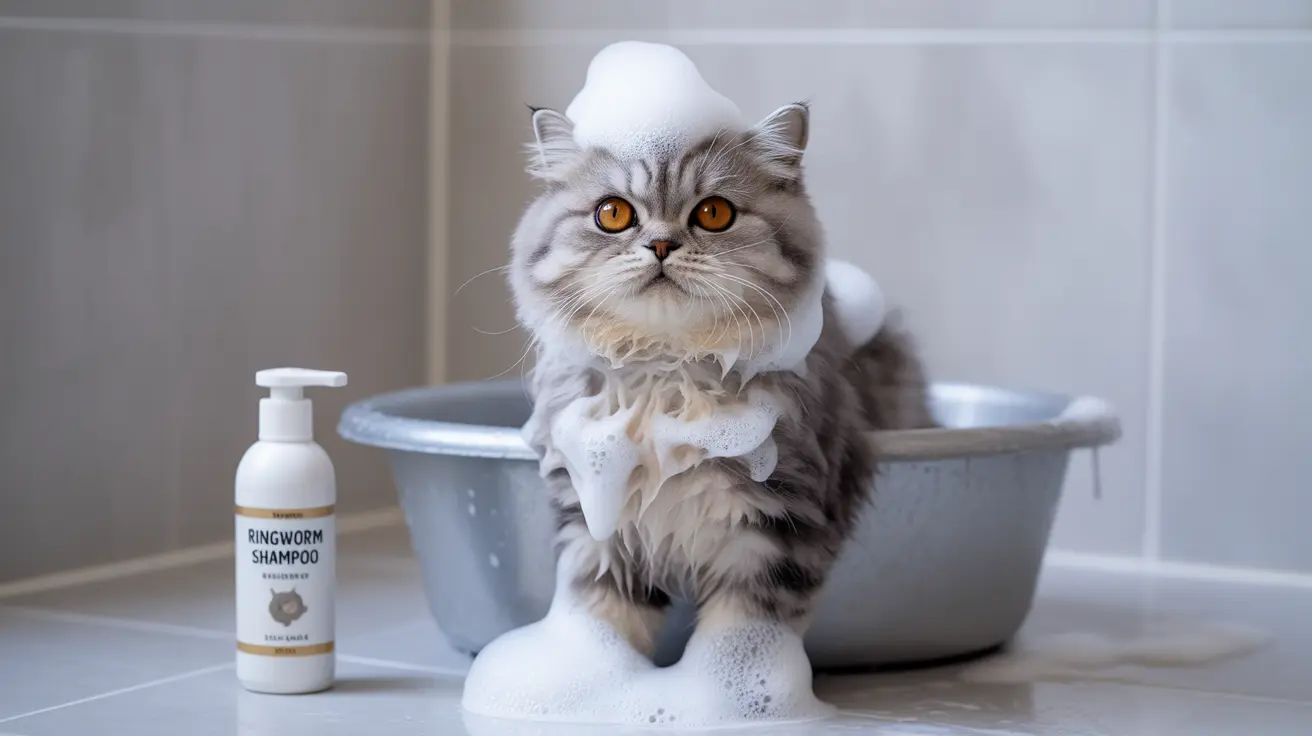Understanding Cat Ringworm and Why Medicated Shampoo Matters
Ringworm is a highly contagious fungal infection that affects your cat's skin, hair, and sometimes claws. The most common fungus responsible is Microsporum canis, which creates characteristic circular patches of hair loss and scaly skin.
Medicated shampoos play a vital role in treatment by directly attacking the fungus on your cat's skin and coat. They help prevent the spread of infection while supporting the healing process.
Key Ingredients in Effective Ringworm Shampoos
The most effective ringworm shampoos for cats contain specific antifungal ingredients:
- Miconazole and chlorhexidine combination
- Ketoconazole
- Lime sulfur (traditional but less commonly used today)
These active ingredients work by disrupting the fungal cell walls and preventing fungal reproduction. The best products often combine multiple antifungal agents for maximum effectiveness.
How to Properly Use Ringworm Shampoo
Successful treatment requires proper application technique and consistency:
- Wet your cat's coat thoroughly
- Apply shampoo and work into a lather
- Let the product sit for 10 minutes
- Rinse completely
- Repeat treatments 2-3 times per week as directed
Comprehensive Treatment Approach
While medicated shampoo is important, it works best as part of a multi-faceted treatment plan that includes:
- Oral antifungal medications prescribed by your vet
- Environmental decontamination
- Regular monitoring and assessment
- Proper isolation of infected cats
Environmental Management During Treatment
To prevent reinfection and protect other pets and family members:
- Vacuum daily and dispose of vacuum bags
- Wash all bedding in hot water
- Disinfect surfaces with appropriate cleaning solutions
- Keep infected cats isolated in easy-to-clean areas
Frequently Asked Questions
What are the most effective antifungal ingredients in ringworm shampoos for cats?
The most effective ingredients are miconazole combined with chlorhexidine, ketoconazole, and lime sulfur. These ingredients have proven antifungal properties that target and eliminate the ringworm fungus.
How often should I bathe my cat with ringworm shampoo to ensure proper treatment?
Most veterinarians recommend bathing affected cats 2-3 times per week throughout the treatment period, which typically lasts 4-6 weeks. Always follow your veterinarian's specific instructions.
Can I use ringworm shampoo alone to treat my cat, or are oral medications necessary?
While medicated shampoo is important, it's usually not sufficient as a standalone treatment. Most cases require a combination of topical and oral medications prescribed by your veterinarian for complete resolution.
How should I manage the environment and grooming when treating my cat for ringworm?
Regular cleaning and disinfection of your home environment is crucial. Vacuum daily, wash bedding in hot water, and disinfect surfaces. Groom your cat carefully to avoid spreading spores, and always wear gloves when handling an infected cat.
Are there special treatment considerations for kittens or long-haired cats with ringworm?
Yes, kittens may need gentler formulations due to sensitive skin, and long-haired cats might require careful grooming or shaving to ensure the medication reaches the skin. Always consult your veterinarian for specific recommendations based on your cat's age and coat type.
Conclusion
Choosing and properly using the right ringworm shampoo is crucial for treating this common feline fungal infection. Remember that successful treatment requires a comprehensive approach combining medicated shampoo, oral medications, and thorough environmental cleaning. Always work closely with your veterinarian to develop the most effective treatment plan for your cat.






